Five conclusions from the RideLondon Classique 2022
Wiebes too fast, TV coverage does affect the racing, success for NXTG, over-performing Conti teams and under-performing WorldTour teams
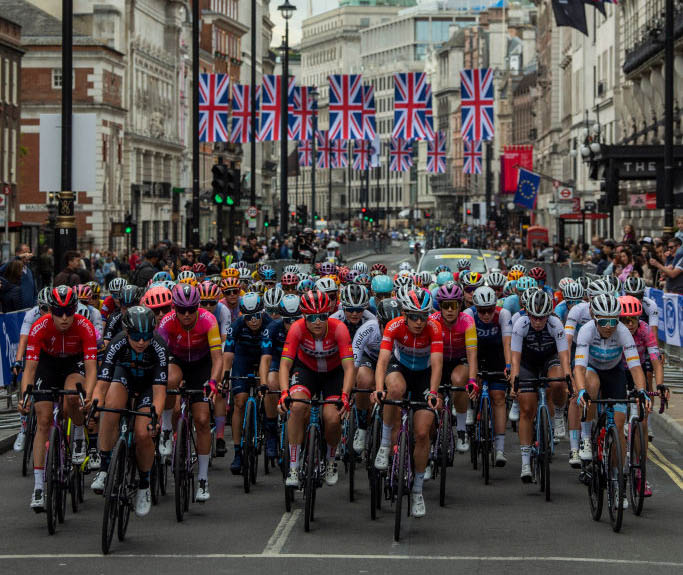
Returning for the first time since 2019 and in a new three-day format, the RideLondon Classique continued the WorldTour stage racing season with a trek around Essex and London this weekend.
After the climbing-heavy trips to Itzulia and Burgos, RideLondon was a fast and flat affair, and a race for the sprinters - or indeed, just the one sprinter.
Team DSM’s Lorena Wiebes took victory on all three stages, sealing the overall and forcing the likes of Elisa Balsamo (Trek-Segafredo) and Emma Norsgaard (Movistar) to settle for podium places.
We’re only three races into the WorldTour stage racing calendar, but we’ve already seen two complete whitewashes: first Demi Vollering at Itzulia, and now Wiebes in the UK.
There may be only one winner to talk about, but there were plenty of lessons learned from the first three-day edition of the RideLondon Classique. Here are Cyclingnews’ five conclusions.
Wiebes is simply the fastest
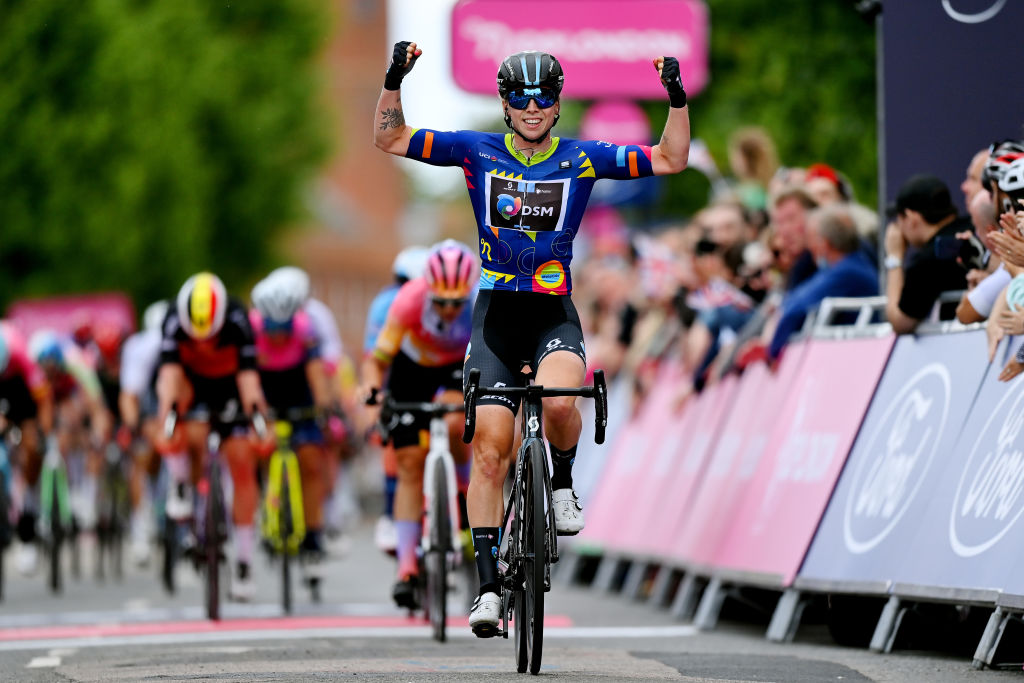
If there was ever any question about who is the fastest sprinter in the women’s peloton, Lorena Wiebes answered it at RideLondon. Winning all three stages and the overall, Wiebes utterly dominated the sprint field.
But even more than just winning, she won by significant distances every time, proving she is a full level above her sprint rivals. Whether she has a textbook lead-out or finds herself chasing wheels, Wiebes’ turn of speed in a sprint is simply faster than anyone else’s.
Get The Leadout Newsletter
The latest race content, interviews, features, reviews and expert buying guides, direct to your inbox!
It’s true that riders like Elisa Balsamo and Emma Norsgaard have the upper hand over Wiebes over tougher parcours or more Classics-style races, but when it comes to a flat-out sprint to the line, hardly anyone can even challenge the Dutch rider, let alone beat her.
The hat-trick of wins for Wiebes may not have made for the most exciting three days of racing, but it was an undeniably impressive feat that cements Wiebes’ position atop the hierarchy of sprinters.
You can throw a lot at the sprinters without slowing them down
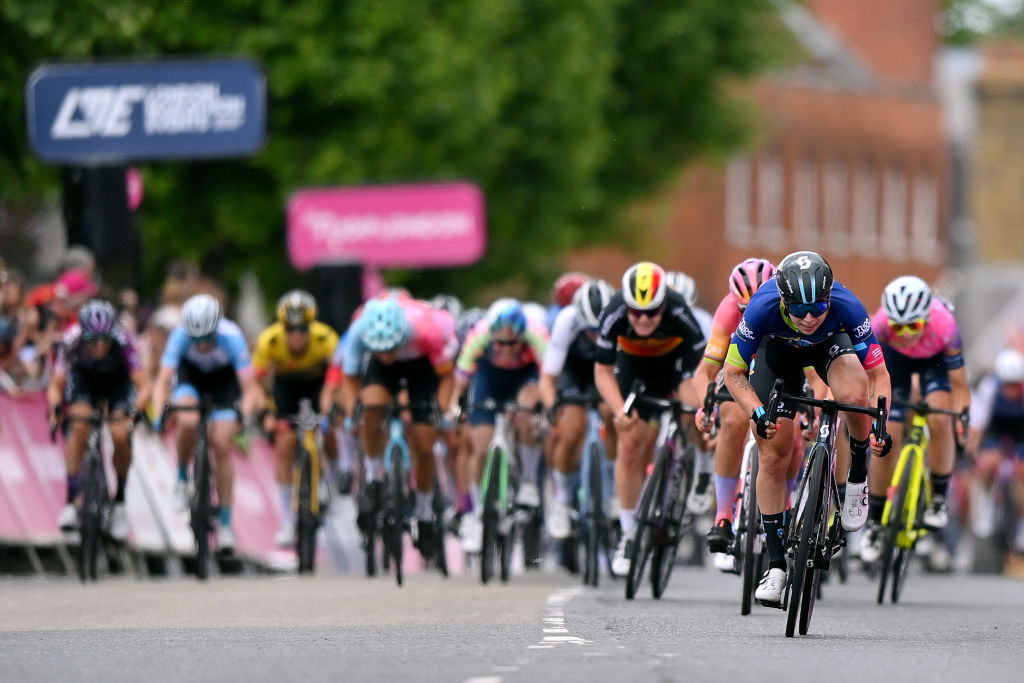
When the routes and profiles for the RideLondon Classique were announced, it was hoped that the short but sharp climbs in the final parts of stages 1 and 2 might result in something other than a typical bunch sprint. But the reality proved otherwise.
In a peloton of ever-increasing quality and depth, it will take a lot more than a handful of 500m climbs or a rise to the line to disrupt even the purest of sprinters.
This was a source of disappointment for riders like Norsgaard and Lotte Kopecky who hoped Wiebes would struggle on the climbs, but it’s a testament to just how high the level is in the peloton.
On stage 3, where there were no climbs to contend with, even a flat-out pace from SD Worx - which once may have seen weaker riders distanced - wasn’t enough to put anyone significant in trouble.
Though all three stages ended in sprints, many riders described the weekend as a tough three days of racing, and it shows just how resilient the sprinters are and just how hard they can go without losing much in terms of power and speed.
TV coverage does affect the racing
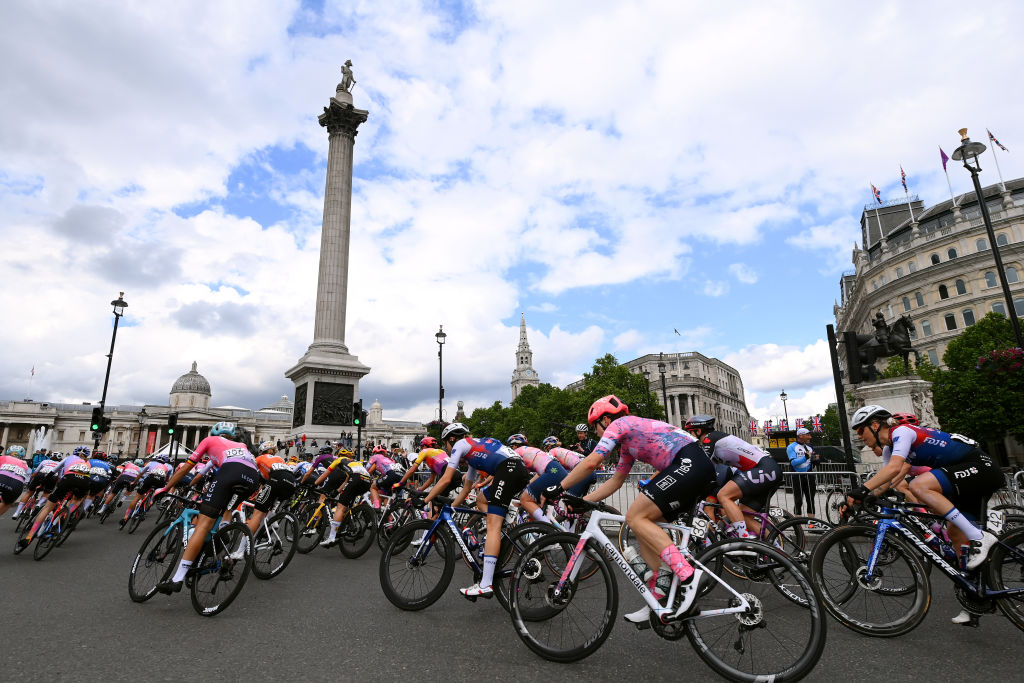
Another WorldTour race and unfortunately another dispiriting conclusion about live coverage, but RideLondon showed us that the impact of live TV is about a lot more than just the principle of showing the women’s sport and increasing visibility, it can also affect the racing.
On stages 1 and 2, which had no live coverage, the attacks were minimal with no early break on stage 1, and just a solo move from Veronica Ewers (EF Education-TIBCO-SVB) on the second day. Usually, the early breakaways are a chance for the smaller teams to get some time on television, but without that, the teams lacked the desire to animate these early moves.
Yet on stage 3, where there was live coverage, the attacks came thick and fast, seemingly proving at least some correlation between the coverage and the way teams race.
The course design also had some impact on the way the three stages were ridden: with the sprint points and Queen of the Mountains climbs fairly back loaded on both stages 1 and 2, and the stage winners likely to secure the sprint competition anyway, there was even less of a motivation to go in an early break.
No broadcast on which to show off your sponsors, and no jerseys to chase or intermediate prizes to be won. Having three flat sprint stages - in part due to the fact that south east England doesn’t offer much else in terms of terrain - can be accepted, but in future the race organisers may do well to include more incentives for the non-sprint teams.
Success for NXTG riders, past and present
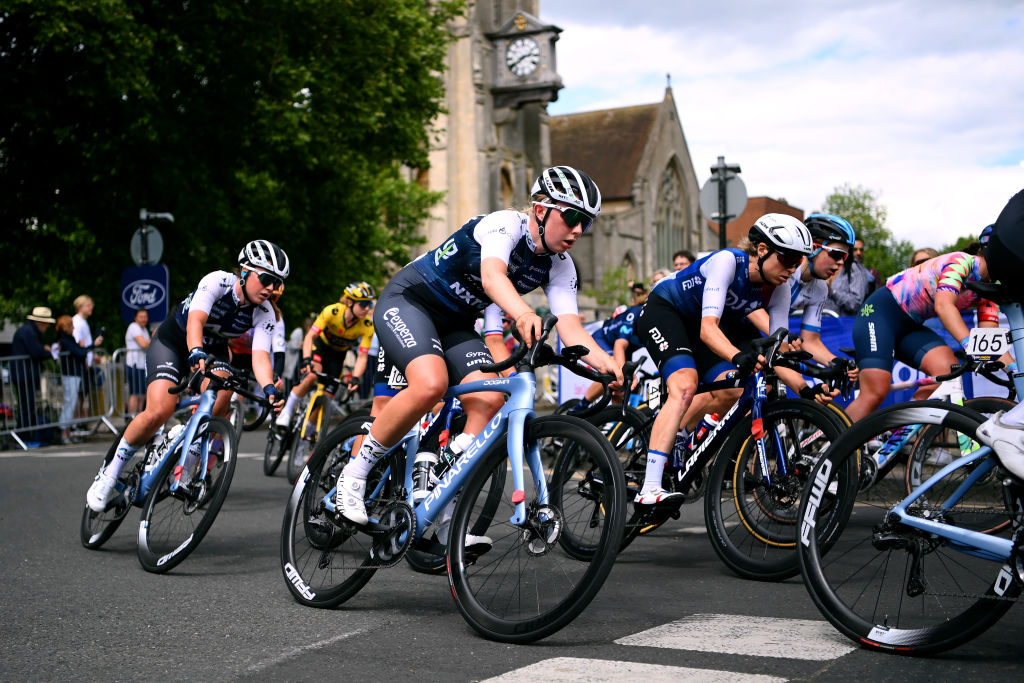
Under-23 team AG Insurance-NXTG Racing continued their successful run of form at RideLondon, coming away with a top-10 for rising star Ally Wollaston, as well as eighth on GC and the best young rider prize for Julie Borgstrom.
After the former best young rider Vittoria Guazzini (FDJ-Nouvelle Aquitaine-Futuroscope) abandoned early on in stage 3, NXTG grabbed the opportunity for Borgstrom to contest the classification by attacking and taking bonus sprint seconds.
Rather than waiting for the sprint, Wollaston then went for it again in the final kilometres to set up Borgstrom to finish 12th and secure the jersey. The team - and particularly Wollaston, racing her first WorldTour race after a successful May - animated the race and proved their strength at the highest level.
As well as the riders currently on the team, two NXTG graduates had an impressive showing over the weekend. Charlotte Kool was possibly the most valuable rider of the whole race for winner Lorena Wiebes, protecting her in the peloton and then delivering her to the line with excellent lead-outs.
Kool made her name in 2021 sprinting for NXTG, and with DSM has developed into a key support rider Wiebes as well as improving her own sprint speed. Kool’s teammate in 2021 Shari Bossuyt also rode particularly well on Sunday, sprinting to 7th in London to place two Belgians in the top 10 of a WorldTour race, a comparative rarity.
With Kool and Bossuyt going so well, NXTG are proving that their project really does help create the next generation of great riders.
Over-performing Continental teams, under-performing WorldTour teams
AG Insurance-NXTG Racing were certainly not the only team punching above their weight against the WorldTour teams, with several arguably outperforming their WorldTour competitors. Team classification winners Valcar Travel & Service proved once again why they are the best ranked non-WorldTour team. They placed two riders in the top 10 on stages 1 and 2 as Consonni and Persico showed off their sprinting ability, and on stage 3 Consonni came from way back to finish fourth.
For St Michel-Auber 93, RideLondon was their first ever WorldTour stage race and only their second ever WorldTour event, and they came away with an impressive 10th on GC after some strong rides from Simone Boilard. Boilard also took second in the young rider’s classification after a spirited fight on stage 3 that saw her attack the peloton. St Michel-Auber 93 are one of three French Continental teams invited to the Tour de France Femmes in July, and if their first WorldTour stage race is anything to go by, they’re not just going to make up the numbers.
On the flipside, new WorldTour team Uno-X had something of a forgettable weekend in their first WorldTour race since Liège-Bastogne-Liège. In a race made for sprinters, Uno-X would have been looking at their Norwegian rider Susanne Andersen to be in the mix in the finales, but her best result was 18th on stage 1. Uno-X skipped the block of Spanish races, presumably to focus on races like RideLondon and the Women’s Tour that suit their roster better, but the result has so far been lacklustre. The team have only one WorldTour top-10 so far this season, so have some ground to make up in their first WorldTour season.
Matilda is an NCTJ-qualified journalist based in the UK who joined Cyclingnews in March 2025. Prior to that, she worked as the Racing News Editor at GCN, and extensively as a freelancer contributing to Cyclingnews, Cycling Weekly, Velo, Rouleur, Escape Collective, Red Bull and more. She has reported from many of the biggest events on the calendar, including the Giro d'Italia, Tour de France Femmes, Tour of Flanders and Paris-Roubaix. She has particular experience and expertise in women's cycling, and women's sport in general. She is a graduate of modern languages and sports journalism.